Better Addiction Care Blogs
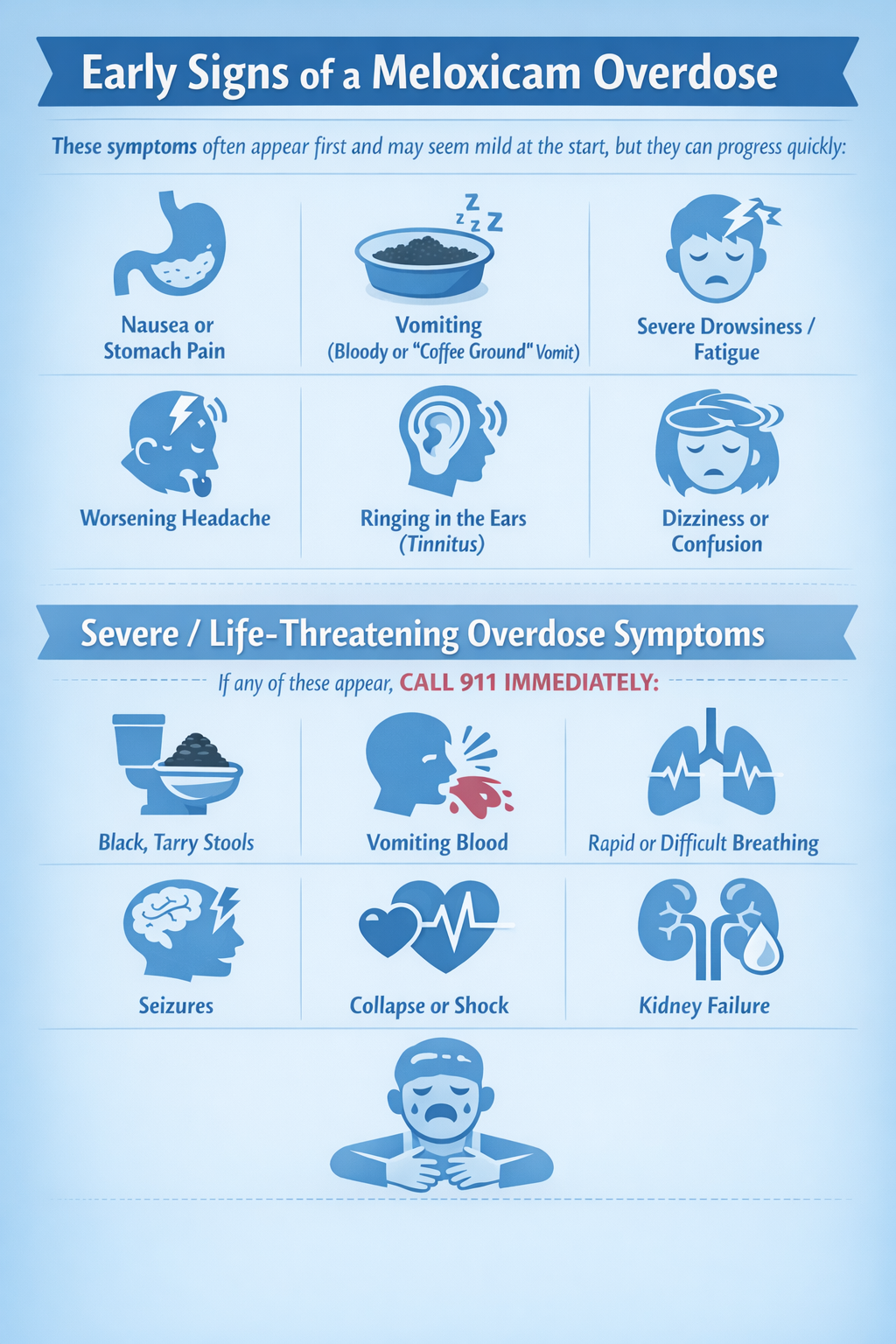 @esle
@esle

Meloxicam overdose can cause serious gastrointestinal bleeding, kidney and heart complications, and neurological symptoms, and requires immediate emergency treatment if severe symptoms such as vomiting blood, black stools, confusion, or fainting occur.
Meloxicam overdose can cause serious gastrointestinal bleeding, kidney and heart complications, and neurological symptoms, and requires immediate emergency treatment if severe symptoms such as vomiting blood, black stools, confusion, or fainting occur.
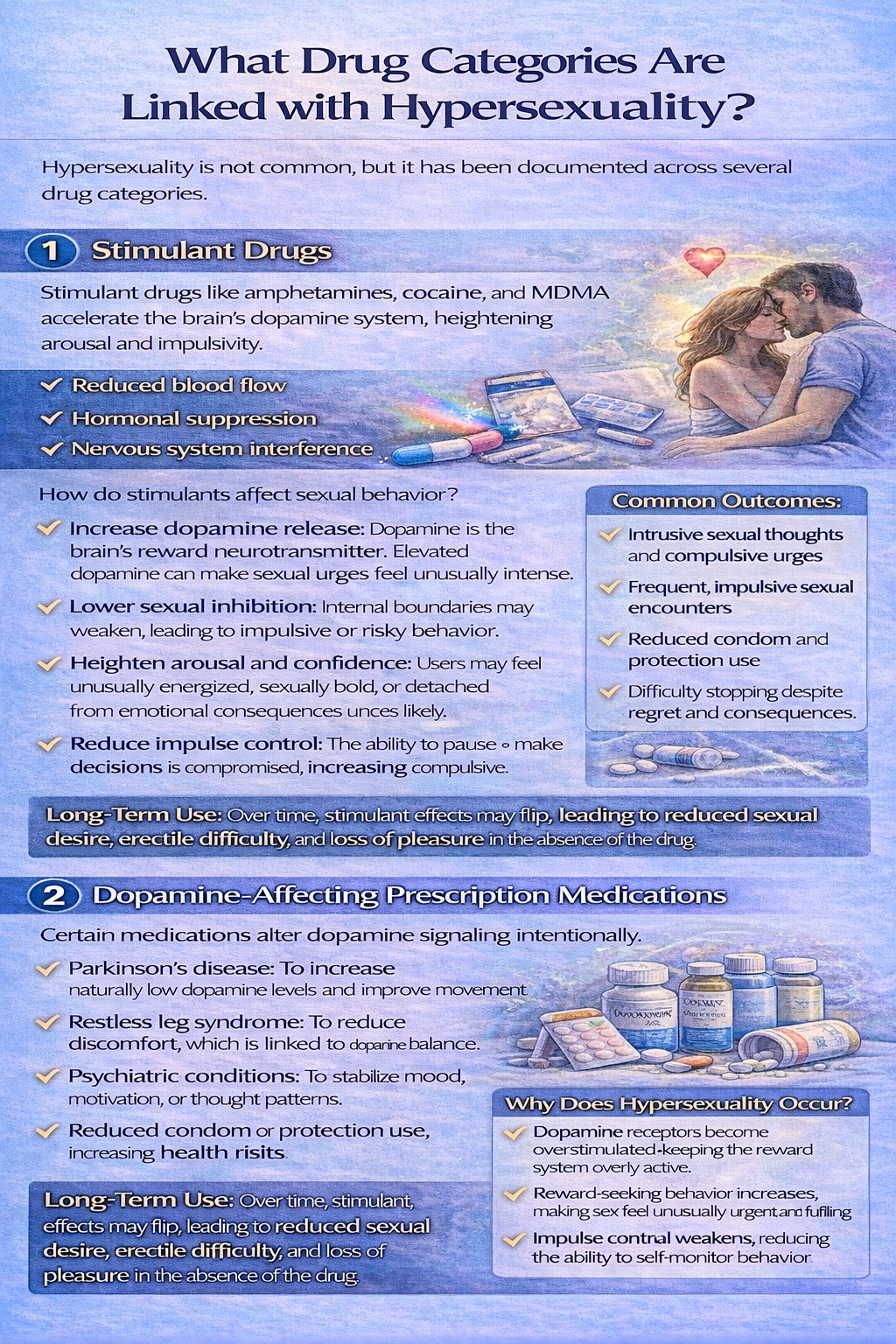
Sudden changes in sexual behavior can feel confusing, frightening, and deeply personal.
For some individuals, these changes appear after starting or using certain drugs or medications.
This article explores how specific drugs can affect sexual behavior and the reproductive system, including increased libido, risky sexual behavior, fertility problems, and sexual dysfunction.
Sudden changes in sexual behavior can feel confusing, frightening, and deeply personal.
For some individuals, these changes appear after starting or using certain drugs or medications.
This article explores how specific drugs can affect sexual behavior and the reproductive system, including increased libido, risky sexual behavior, fertility problems, and sexual dysfunction.
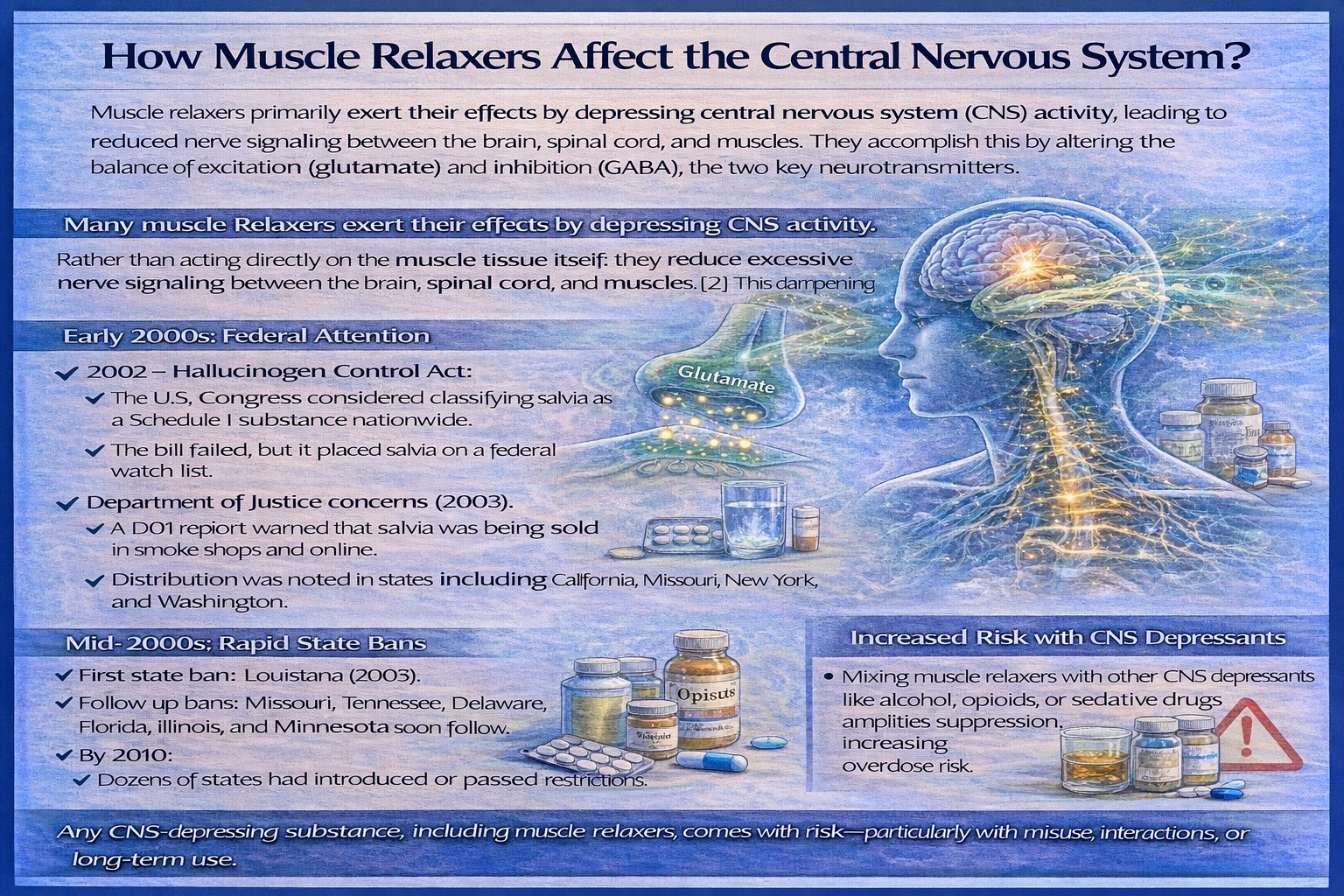
Alcohol is one of the most dangerous substances to combine with muscle relaxers, even in small amounts.
Both alcohol and muscle relaxers depress the central nervous system. When used together, their effects don’t just add—they multiply.
Alcohol is one of the most dangerous substances to combine with muscle relaxers, even in small amounts.
Both alcohol and muscle relaxers depress the central nervous system. When used together, their effects don’t just add—they multiply.
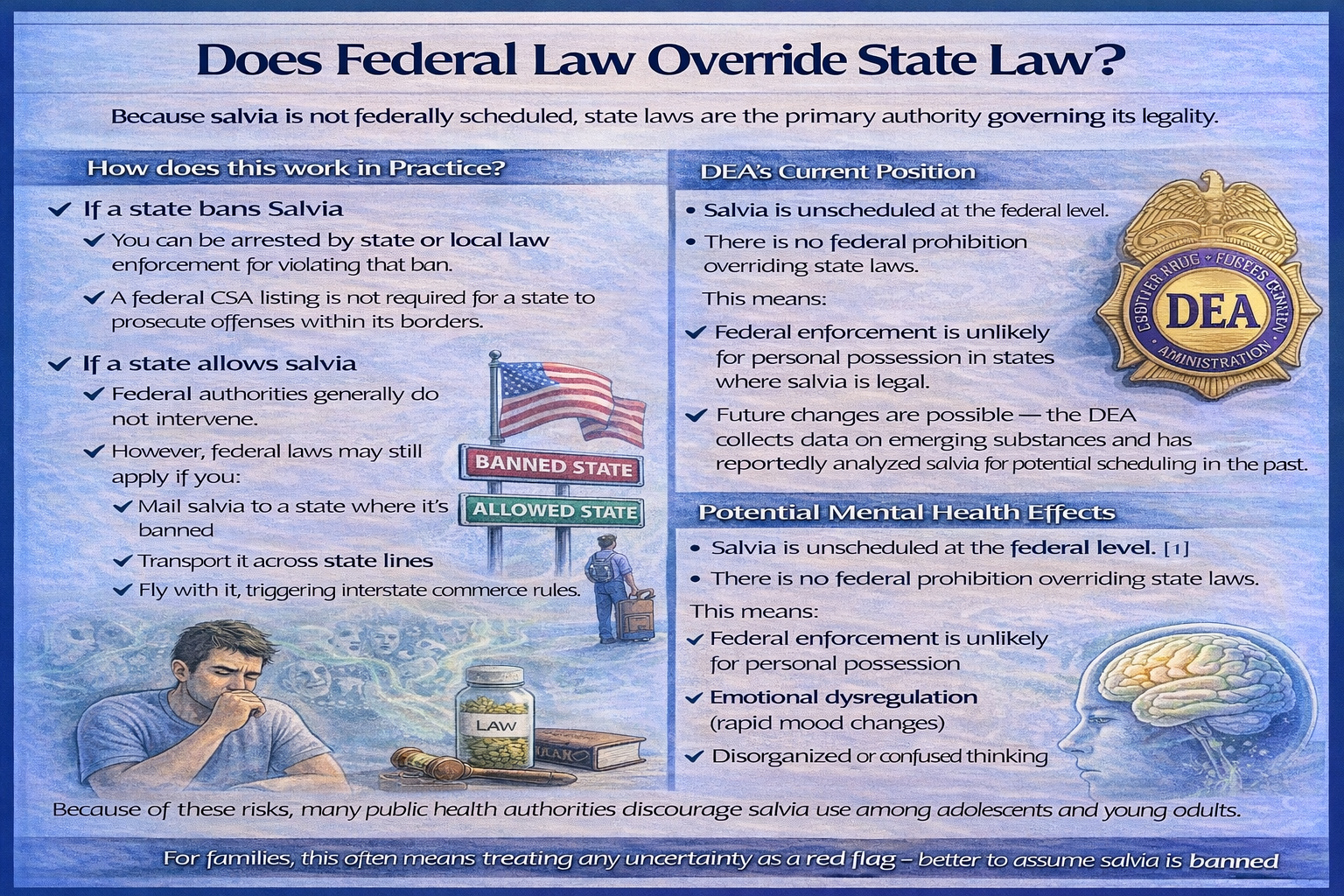 @esle
@esle

At the federal level: Salvia divinorum is not classified under the Controlled Substances Act. It is not assigned to Schedule I–V. Federal law does not currently ban possession or sale
At the federal level: Salvia divinorum is not classified under the Controlled Substances Act. It is not assigned to Schedule I–V. Federal law does not currently ban possession or sale

Salvia divinorum is a psychoactive plant belonging to the mint family (Lamiaceae). It is native to the cloud forests of Oaxaca, Mexico, where it has been used for generations in ceremonial and spiritual practices by the Mazatec people.
Salvia divinorum is a psychoactive plant belonging to the mint family (Lamiaceae). It is native to the cloud forests of Oaxaca, Mexico, where it has been used for generations in ceremonial and spiritual practices by the Mazatec people.
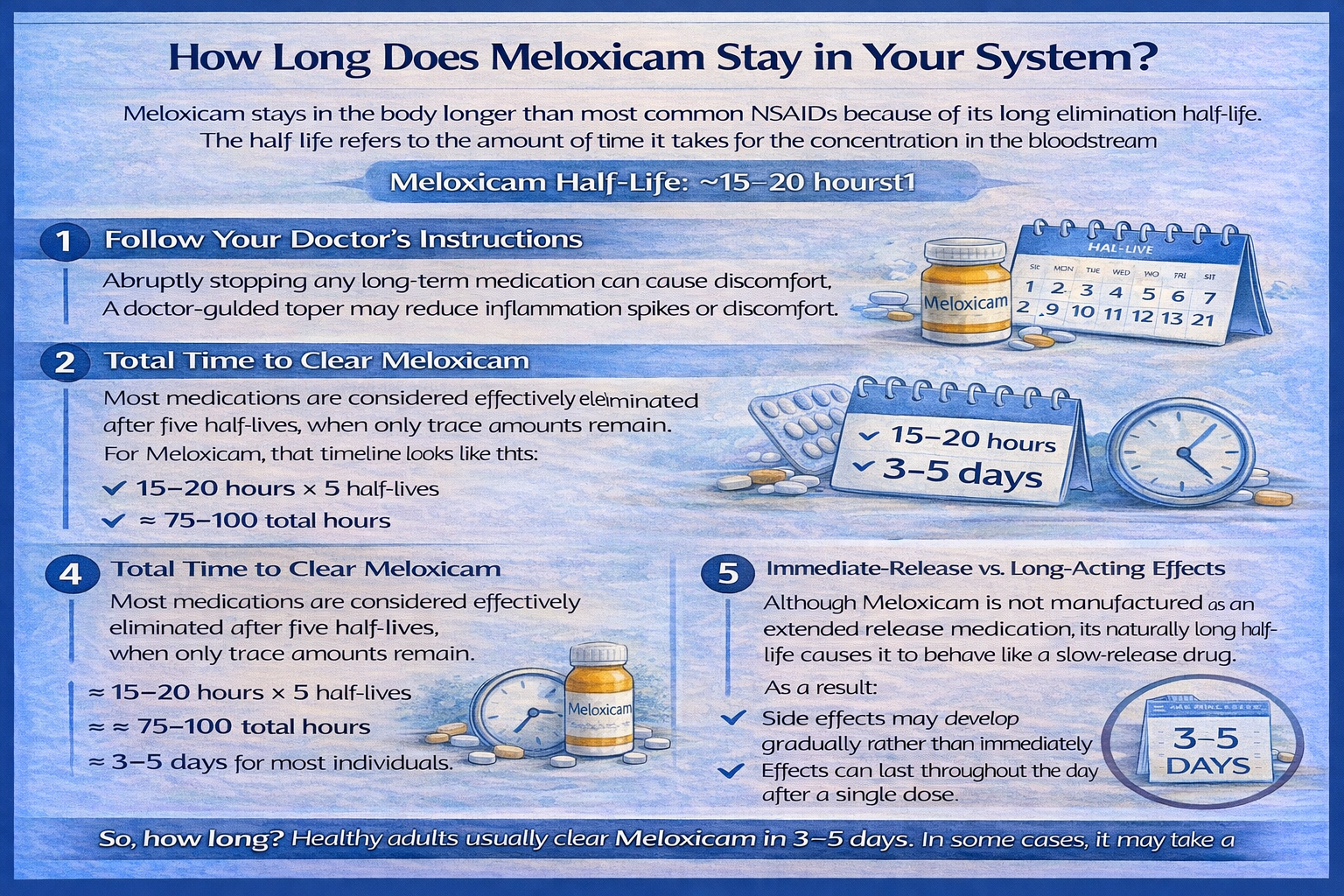 @esle
@esle

Meloxicam stays in the body longer than most common NSAIDs because of its long elimination half-life. The half-life refers to the amount of time it takes for the concentration of the medication in the bloodstream to decrease by 50% after a dose. Meloxicam Half-Life: ~15–20 hours
Meloxicam stays in the body longer than most common NSAIDs because of its long elimination half-life. The half-life refers to the amount of time it takes for the concentration of the medication in the bloodstream to decrease by 50% after a dose. Meloxicam Half-Life: ~15–20 hours
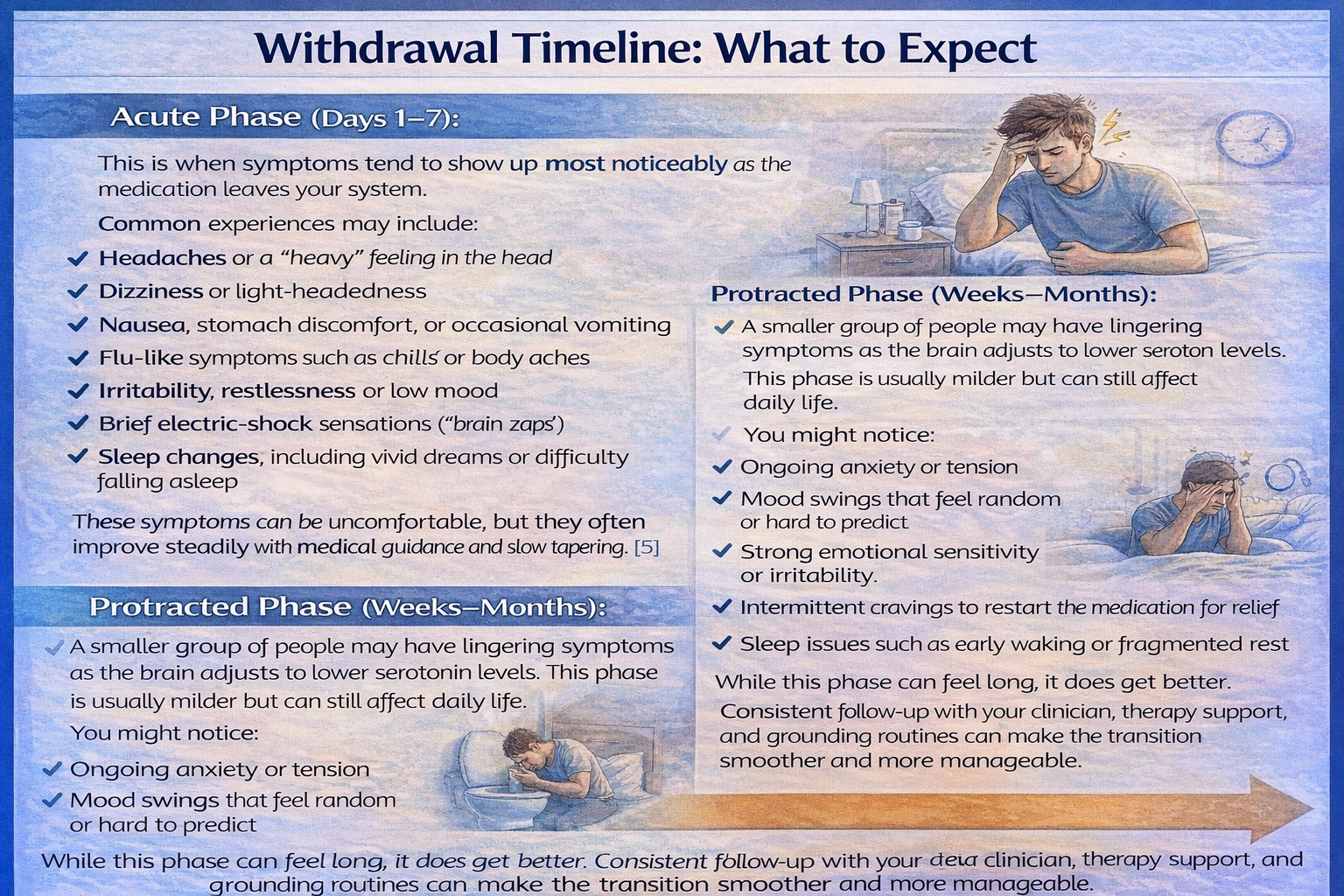
Prozac can provide meaningful relief for depression, but some people may gradually misuse it—raising doses, doubling missed doses, or taking it to feel emotionally numb.
While not physically addictive, it can create psychological dependence, making daily functioning feel impossible without the medication.
Prozac can provide meaningful relief for depression, but some people may gradually misuse it—raising doses, doubling missed doses, or taking it to feel emotionally numb.
While not physically addictive, it can create psychological dependence, making daily functioning feel impossible without the medication.
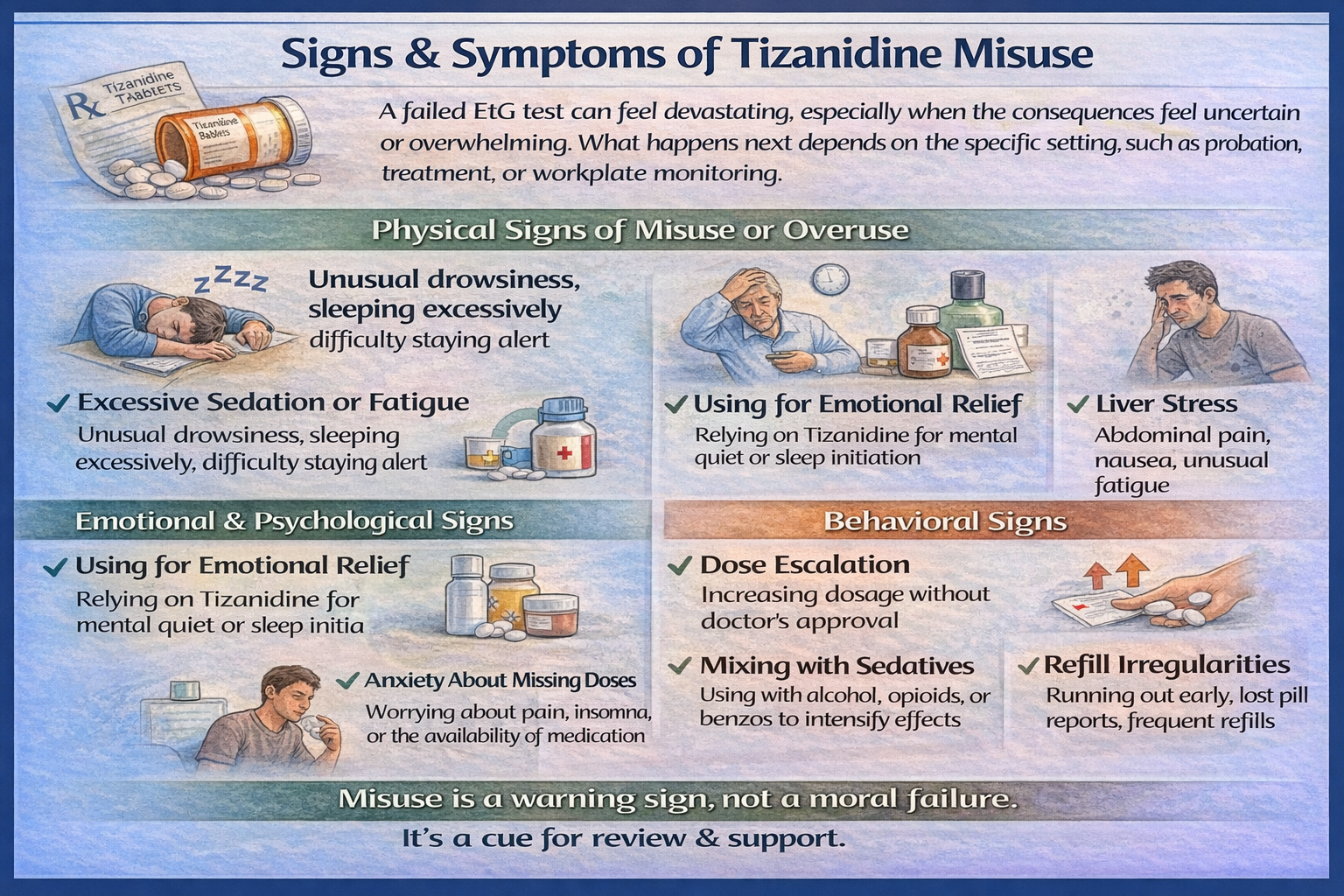
Tizanidine, sold under the brand name Zanaflex, is a centrally acting muscle relaxant approved for the treatment of spasticity, particularly in conditions such as multiple sclerosis, spinal cord injury, or other neurological disorders. [1]
Tizanidine, sold under the brand name Zanaflex, is a centrally acting muscle relaxant approved for the treatment of spasticity, particularly in conditions such as multiple sclerosis, spinal cord injury, or other neurological disorders. [1]
The EtG (ethyl glucuronide) test is used to detect recent alcohol exposure by identifying a biomarker that remains in the body after alcohol itself is no longer present.
Because EtG can be detected for days rather than hours, understanding its detection window is especially important in settings such as workplace testing, probation monitoring, and medical or addiction treatment programs.
The EtG (ethyl glucuronide) test is used to detect recent alcohol exposure by identifying a biomarker that remains in the body after alcohol itself is no longer present.
Because EtG can be detected for days rather than hours, understanding its detection window is especially important in settings such as workplace testing, probation monitoring, and medical or addiction treatment programs.
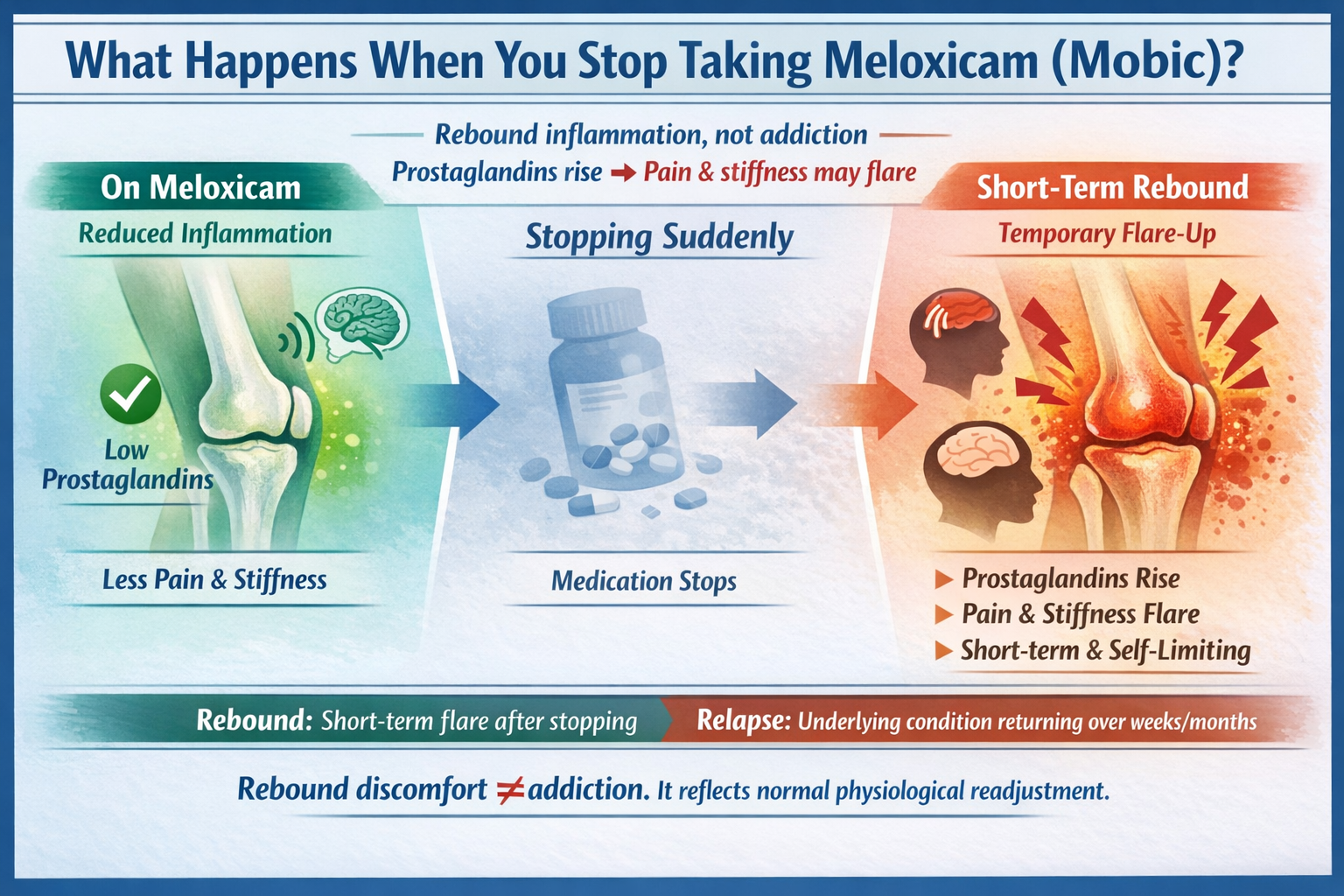 @esle
@esle

When someone stops meloxicam suddenly—especially after long-term use—the body may react. It’s not withdrawal in the addictive sense, because meloxicam doesn’t change brain reward pathways or create cravings.
When someone stops meloxicam suddenly—especially after long-term use—the body may react. It’s not withdrawal in the addictive sense, because meloxicam doesn’t change brain reward pathways or create cravings.
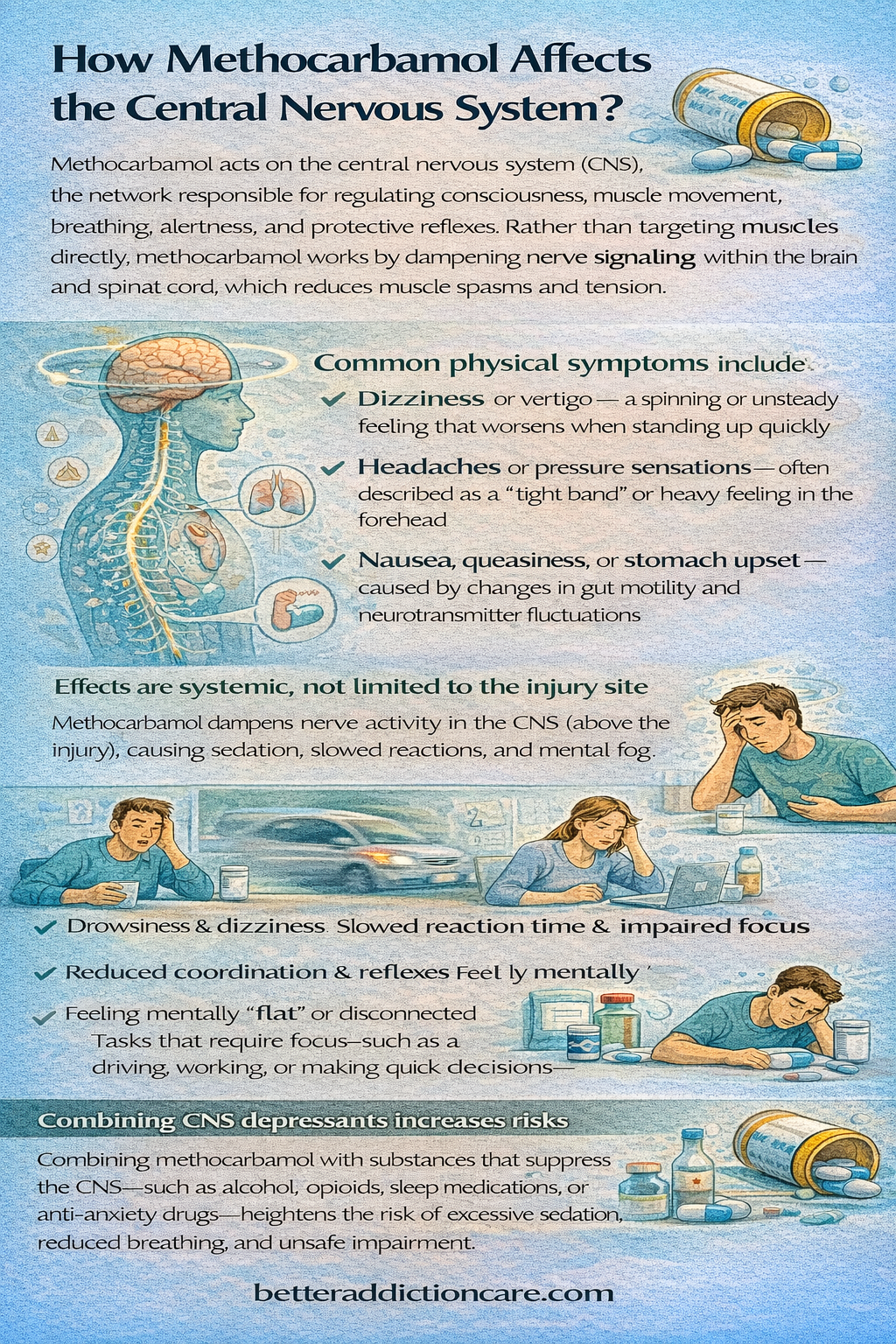 @esle
@esle

Drug and alcohol interactions occur because the brain and body have finite safety limits for how much suppression or stimulation they can safely manage at once.
When two or more substances act on the same physiological systems—especially the central nervous system—their effects don’t simply add up. Instead, they can compound or multiply, overwhelming the brain’s ability to regulate alertness, coordination, decision-making, and breathing.
Drug and alcohol interactions occur because the brain and body have finite safety limits for how much suppression or stimulation they can safely manage at once.
When two or more substances act on the same physiological systems—especially the central nervous system—their effects don’t simply add up. Instead, they can compound or multiply, overwhelming the brain’s ability to regulate alertness, coordination, decision-making, and breathing.
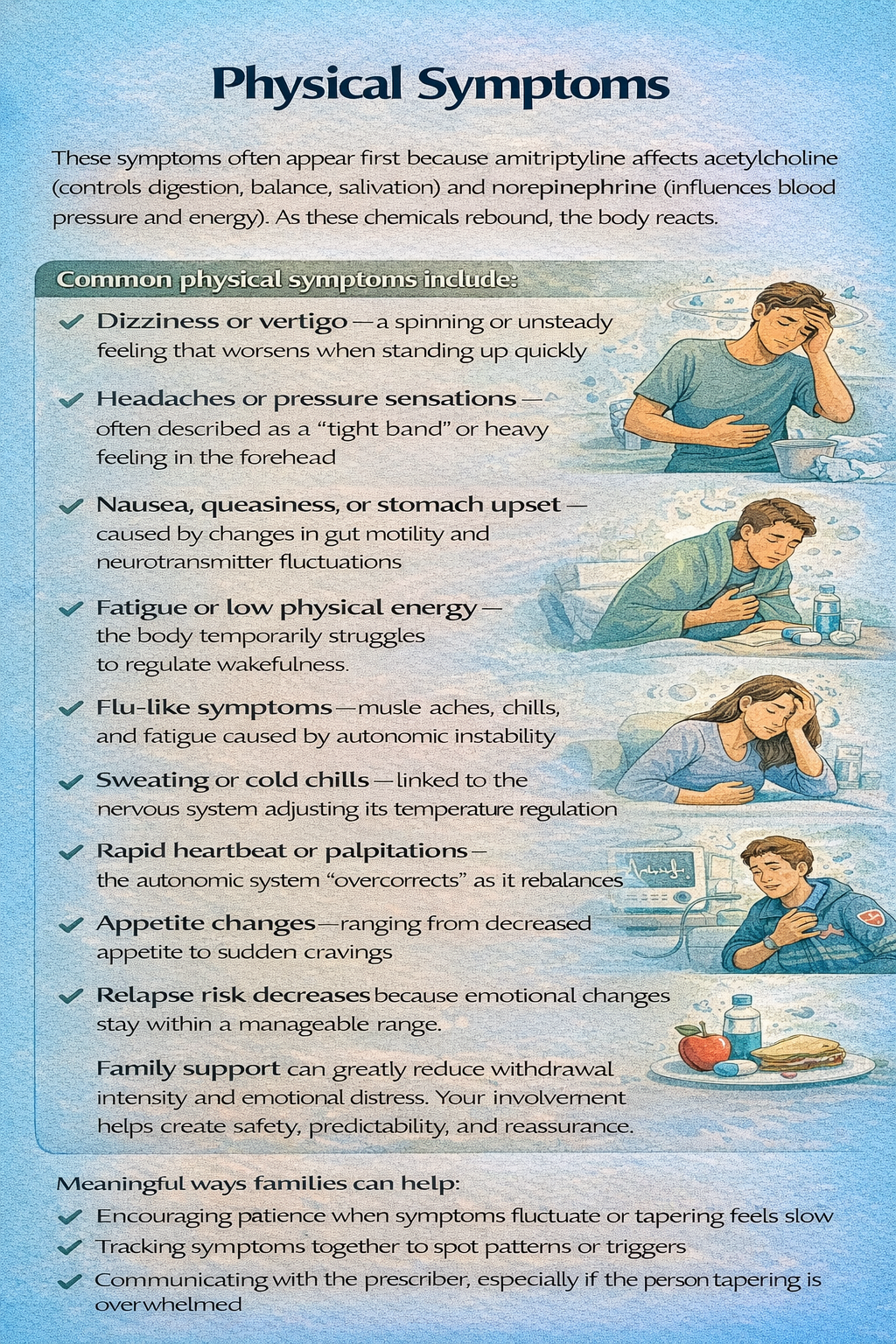 @esle
@esle

When someone takes amitriptyline for weeks or months, the brain adjusts its own chemical balance. Think of it like a thermostat gradually resetting to the drug’s presence.
When the drug is reduced too quickly, the thermostat hasn’t caught up — causing withdrawal.
When someone takes amitriptyline for weeks or months, the brain adjusts its own chemical balance. Think of it like a thermostat gradually resetting to the drug’s presence.
When the drug is reduced too quickly, the thermostat hasn’t caught up — causing withdrawal.
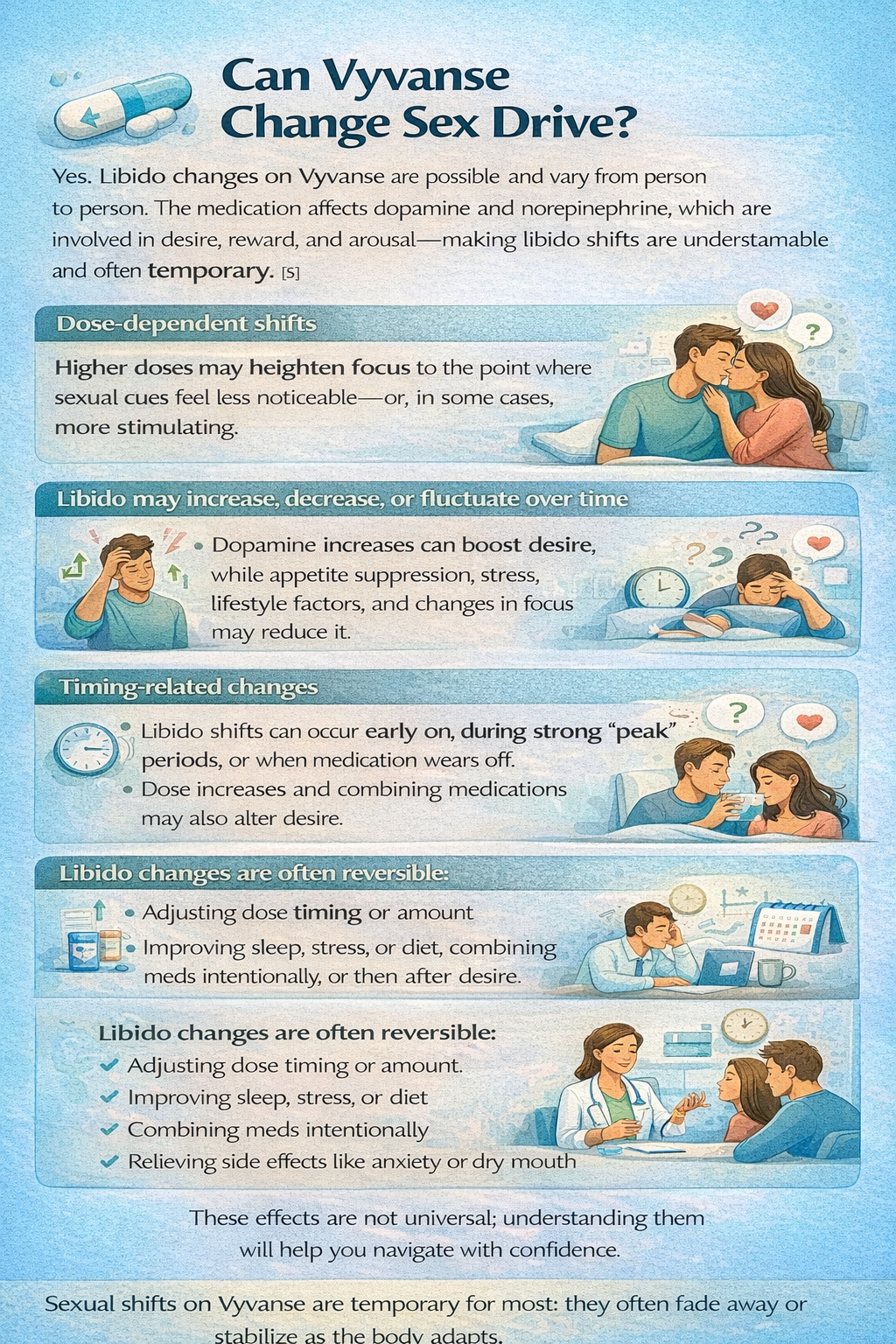 @esle
@esle

Libido changes on Vyvanse are possible, and they can look very different from person to person. Because the medication influences dopamine and norepinephrine—the same pathways involved in desire, reward, and arousal—sexual shifts are understandable and often temporary.
Libido changes on Vyvanse are possible, and they can look very different from person to person. Because the medication influences dopamine and norepinephrine—the same pathways involved in desire, reward, and arousal—sexual shifts are understandable and often temporary.

Most muscle relaxers leave the system within hours to 1–2 days. But cyclobenzaprine is the main exception, often lingering for several days. [2]
Most muscle relaxers leave the system within hours to 1–2 days. But cyclobenzaprine is the main exception, often lingering for several days. [2]

Vyvanse is a central nervous system stimulant and Schedule II controlled substance. It increases dopamine and norepinephrine in the brain to improve focus and impulse control.
As Vyvanse enhances dopamine, it can produce effects that lead to tolerance, dependence, and addiction, particularly when misused.
Vyvanse is a central nervous system stimulant and Schedule II controlled substance. It increases dopamine and norepinephrine in the brain to improve focus and impulse control.
As Vyvanse enhances dopamine, it can produce effects that lead to tolerance, dependence, and addiction, particularly when misused.
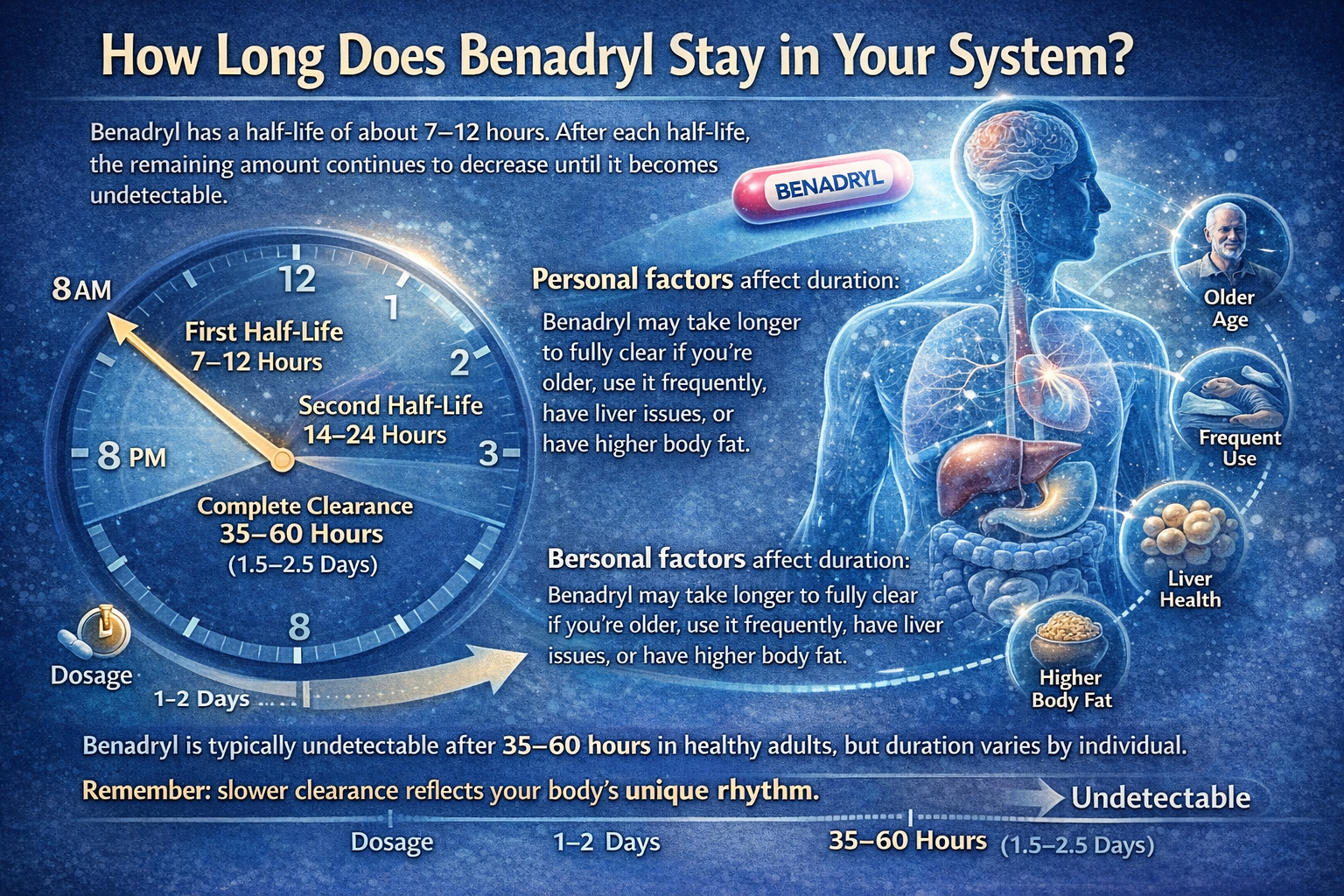 @esle
@esle

Like any medication, the duration depends on many personal factors — but we can look at averages to create a clearer, calmer picture.
Like any medication, the duration depends on many personal factors — but we can look at averages to create a clearer, calmer picture.
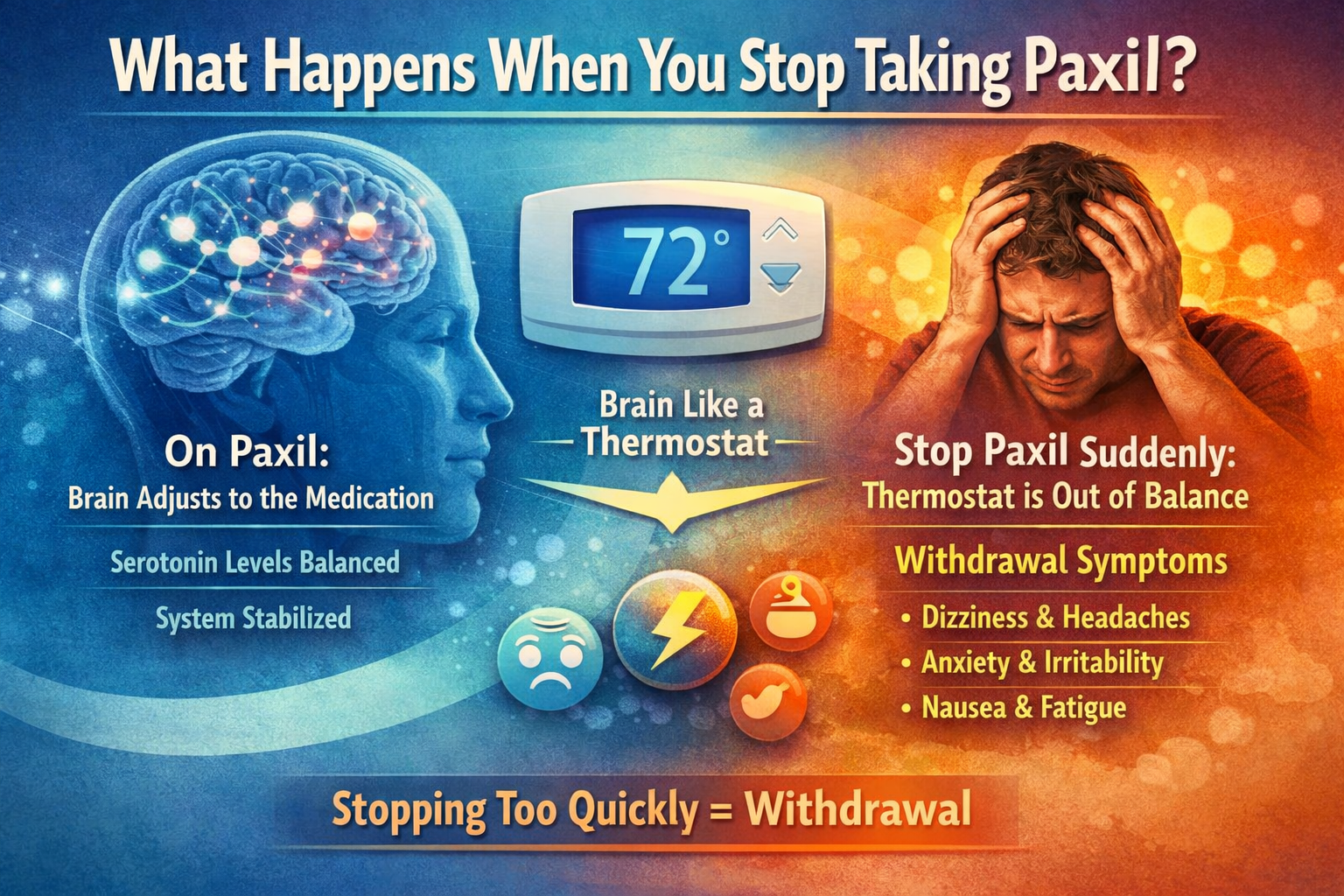 @esle
@esle

Paxil (paroxetine) is a selective serotonin reuptake inhibitor (SSRI) used to treat depression, anxiety disorders, panic disorder, PTSD, and related conditions. It works by increasing the availability of serotonin, a neurotransmitter involved in mood regulation, emotional balance, sleep, and stress response.
Paxil (paroxetine) is a selective serotonin reuptake inhibitor (SSRI) used to treat depression, anxiety disorders, panic disorder, PTSD, and related conditions. It works by increasing the availability of serotonin, a neurotransmitter involved in mood regulation, emotional balance, sleep, and stress response.
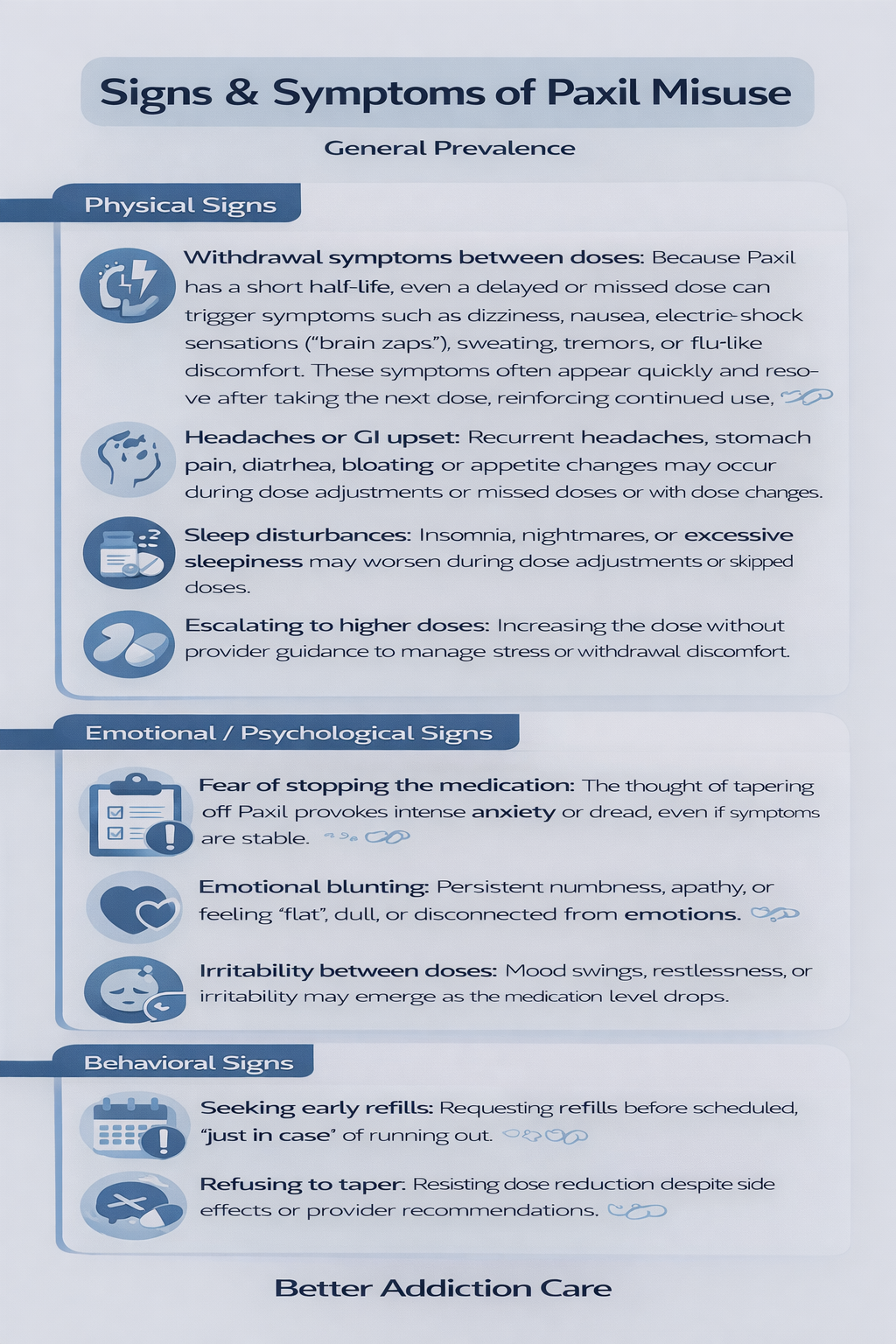
Paroxetine (brand name Paxil) is an SSRI antidepressant that increases serotonin availability in the brain by blocking its reabsorption at nerve synapses. Serotonin plays a central role in mood regulation, anxiety control, sleep, and emotional processing. [1]
Paroxetine (brand name Paxil) is an SSRI antidepressant that increases serotonin availability in the brain by blocking its reabsorption at nerve synapses. Serotonin plays a central role in mood regulation, anxiety control, sleep, and emotional processing. [1]
 @esle
@esle

With meloxicam, interactions often involve increased strain on organs or heightened risk of side effects rather than immediate intoxication.
With meloxicam, interactions often involve increased strain on organs or heightened risk of side effects rather than immediate intoxication.
 @esle
@esle

Stopping Cymbalta (duloxetine) can be overwhelming for the person taking it and for their family. Many people are told it’s “Easy to stop,” only to feel unprepared when symptoms appear.
This page is designed to explain what happens, why it happens, and how Cymbalta can be stopped safely, gradually, and with realistic hope, using evidence-based guidance.
Stopping Cymbalta (duloxetine) can be overwhelming for the person taking it and for their family. Many people are told it’s “Easy to stop,” only to feel unprepared when symptoms appear.
This page is designed to explain what happens, why it happens, and how Cymbalta can be stopped safely, gradually, and with realistic hope, using evidence-based guidance.
